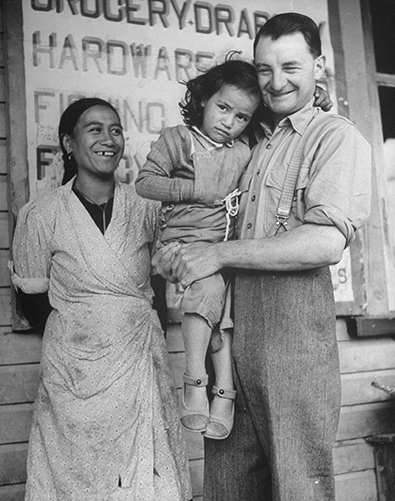
Since first European contact, interracial Māori and Pākehā unions have run the gamut of politics, societal attitudes and religion, but ground-breaking research from historian Dr Angela Wanhalla has shown that for the most part, love held its own.
Her new book Matters of the Heart: A History of Interracial Marriage in New Zealand, which explores this surprisingly unspoken part of New Zealand’s history, has just been launched in Dunedin.
A Kāi Tahu historian and senior lecturer at the University of Otago’s history department, Dr Wanhalla has researched intimate relationships between Māori and Pākehā from the late 18th Century and the arrival of explorers, followed by whalers, traders, missionaries and European settlers, through until the mid to late twentieth century. Her research also touches on the 1970s and 1980s, when attitudes to marriage and relationships markedly changed.
Citing heart-rending examples of inter-racial unions drawn from years of painstaking research into census information, historical records such as newspapers and diaries, and interviews with families, Dr Wanhalla shows that despite attempts to politicise or disapprove of these unions, above all, they endured as caring and intimate relationships.
'Most of these unions were monogamous relationships based on principles of respect, intimacy and love, and they were, for the most part, enduring,' she says.
Matters of the Heart covers the growth of interracial marriages, encompassing common law marriages and Māori customary marriages alongside formal arrangements recognised by church and state. It also runs the gamut of official reactions – from condemnation of interracial immorality or racial treason to a celebration of New Zealand’s unique intermarriage patterns as a sign of us being ‘one people’.
In fact, the Marsden-funded research in the book challenges this notion of successful biculturalism, pointing out that this was more a Government construct. In reality, interracial unions faced significant hurdles and disapproval from familial and societal quarters during the twentieth century.
Angela Wanhalla specialises in the histories of cultural encounter in New Zealand’s colonial past, focusing on gender, race and colonialism in the nineteenth century, the indigenous history of the North American West, and the history of intimacy, particularly interracial relationships and hybridity. She is the author of In/visible Sight: The Mixed-Descent Families of Southern New Zealand and co-editor of Early New Zealand Photography: Images and Texts.
